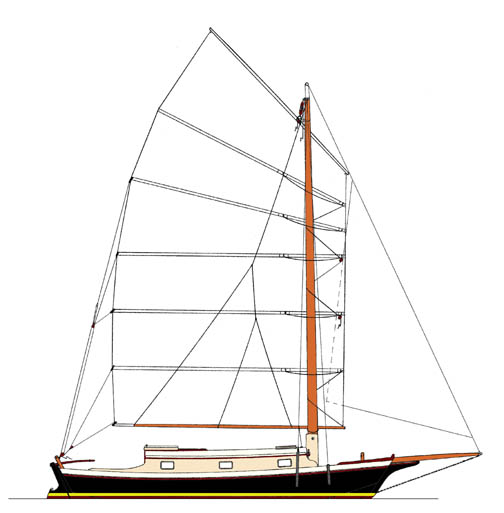I find it kind of funny that people who I don't even know, write to the blog and are hesitant to state a budget when asking advice on various boats.
"Do you think a fixer upper Cascade 36 would be a good boat to get?"
I then ask what it costs, how much the boat is selling for, and what sort of budget they have to work with. In this case, I get a response that tells me the boat is selling for $5K and the engine does not work. As far as their budget is concerned, I get...
"Money's not an issue."
At this point I lose interest because money is always an issue and, if you're reading a blog dedicated to helping penurious folk go cruising, I expect you know very well that money is a rather important issue.
Refitting a classic plastic and cruising it is a deadly serious exercise in creative frugality. You really have to be honest with yourself (and me if you're asking for advice) about what sort of tools you have in your tool box. And yes, dear reader, money or lack thereof is most certainly an important tool in the grand scheme of things.
For instance, in the buying and selling of boats one does themselves a huge disservice if you feel you have to pretend you have more money than you do. Just think about that for a moment. Now, what sort of deal am I going to give you on a beat up CAL 34 if you spend half your time telling me how much money you're going to spend on it? A guy tells me he'll replace all the instruments and take it to the yard to get an Imron paint job done. This tells me two things: 1) the guy has a lot of money to spend or he's just dumb as a bag of hammers; or 2) the best of all worlds for a seller of boats, which is the potential buyer is both well heeled and stupid.
Face it, the last person you want to impress with your excellent stock portfolio or Rolex is the guy selling you a boat.
The same goes for cruising. Everyone cruising has a pain threshold where spending is concerned.
EVERYONE.
Working in the marine trades in the Caribbean, you quickly learn that a lot of folks with all the best stuff and the appearance of a comfortable monetary situation are much more likely to have their credit cards declined or do a runner before paying their bills. Like I said, everyone tends to spend more than they can afford and that's something you really need to know.
Going out to dinner with a bunch of cruisers can burn up an entire months' volkscruiserish budget if you all wind up in some touristy eatery where the burgers are twenty bucks and a beer is going for $5 a bottle. Even worse is when the guy and his wife who had the lobster and the umbrella drinks decides that the group should just split the check instead of each paying their own part of it. Been there done that but could not afford the t-shirt after subsidizing some lobster and Mai Tais.
Which is all a long winded way of pointing out that the most important thing is knowing what you can and can't afford and having the fortitude to tell folks that this is what you can afford when needful.
As it happens, I saw something the other day on Werner Hertzog who has been a great influence on me in a surprising number of ways. His 24 bits of advice really resonates where the whole VolksCruiser thing is concerned.
Especially the bit about bolt cutters.




